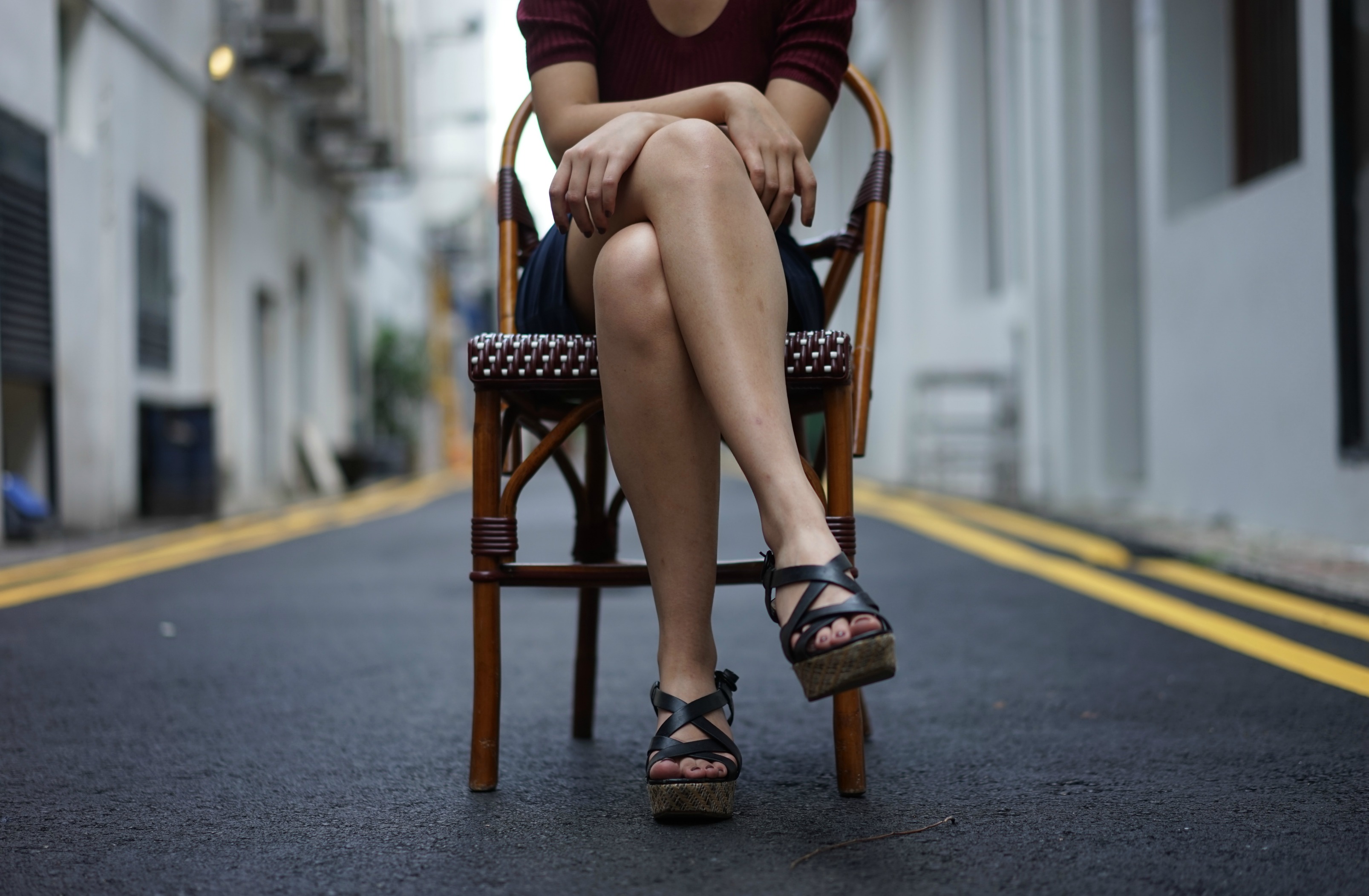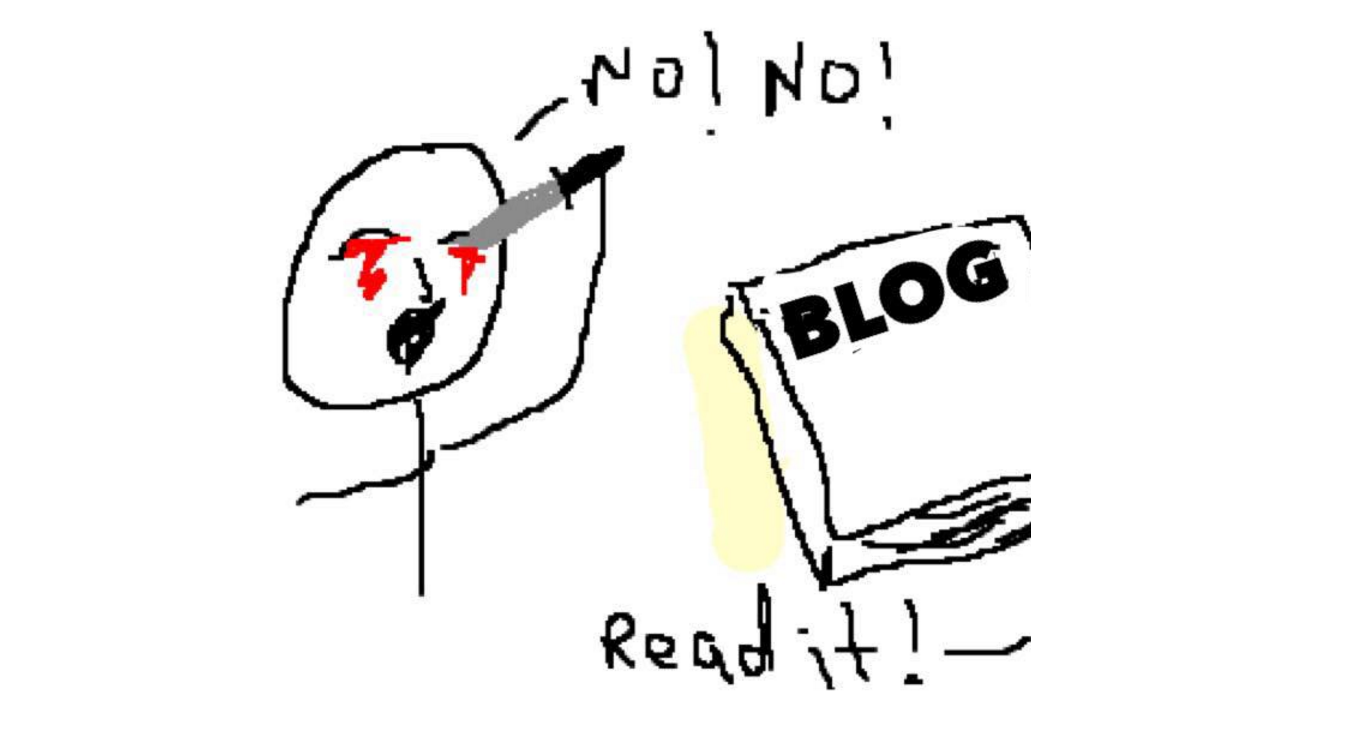“Am I slutty?”
This is a question I often ask myself.
I even ask it to my friends, “Do you think I’m slutty?”
I genuinely want to know.
They tell me no, you just have a high sex drive; no, you’re only a slut if you hit double digits; no, you’re single, it’s fine!
Some of them genuinely mean what they say, but some of them – I can tell – are just trying to make me feel better. Maybe they think it’s a trick question.
While I couldn’t care less what strangers think of me, I do care a great deal what my friends think.
Do I see myself as slutty? Well, yeah.
What else do you call someone who sleeps with people they’re not in relationships with, makes out with strangers in clubs, and sends nudes to boys just because they asked? I’ve slept with boys I haven’t been attracted to in the slightest. I sleep with them because I want sex, and they were available.
So, if a slut is someone who has many casual sexual partners, then I’m guilty as charged.
The Young Slut
There was a time in my life when I was bothered by this label. I was 17 and studying in polytechnic. I was hooking up with different boys from school, sending photos of myself when innocent text conversations turned into something more. I thought I was an awful person. I knew in my mind that I should not be doing this, but I also wondered why? It felt good, not just physically. It felt good to be wanted, to have your body desired. Why shouldn’t I do it? It was my choice after all, wasn’t it? Back then, people would call me a slut behind my back, and it hurt whenever I found out. Gossip like this spreads fast, and the further it spread, the more warped it would become, such that when it came back around, it was a completely different story from what had actually happened. During those day, I would get these looks from schoolmates when we passed in the campus corridors. You just knew they were talking about you, that they knew of you and the things you had done. It’s a confusing environment for a woman who is just finding out who she is and what she believes. Once, the mother of one of the boys I hooked up with caught us in the act and yelled at us. She told me I was a loose woman, and that I had no respect for their family. She might as well have called me the S-word.Staying True To Me
These days, a few years and many experiences later, the label no longer bothers me. These days, I've learned to embrace who I am, what I want, and what I believe. I've learned to embrace the fact that I am a woman who loves sex in a society where it is indecent for a woman to show any signs of wanting it. I've learned to embrace my belief that long-term relationships and monogamy isn't for me -- at least at this stage of my life. I've learned to embrace all of this in spite of the knowledge that many Singaporeans will not approve.So What If I Am, So What If I’m Not?
These days, with Tinder, Grindr, and all that becoming a normal part of our dating experiences, and with shifting attitudes towards relationships, sex, and bodies, people are less judgmental about non-committal sex and casual relationships. Still, there remains a group of people who thinks differently -- a majority that will still call the type of woman I am a 'slut', as if they were morally superior to me. They think I will give myself to anyone and for anything. They think I don't value myself enough. Little do they know that I am doing exactly what I want. There was a time when I was ashamed of being a 'slut', but in the last 7 or 8 years, I've learned that it doesn't matter. It does not define me. Maybe I am a slut, and maybe I'm not. The important thing is that it is not all that I am, and that I know who I am outside of these labels.This Is Me
We all have a choice as to how we live our lives. This is how I’ve chosen for mine. This is my body and I have the right to do whatever I want with it. Maybe monogamy works for some people. But it’s not for me. I don’t think there is a right or wrong when it comes to relationships -- only what is common and what is not. What I do think, however, is that this choice fits me now. Maybe a few years down the road, I will think differently; maybe then, I’ll choose differently. But that is for me to find out later on. Until then, it is no one’s business but mine who I sleep with, how often I do it, and why I do it. And no one is going to make me feel bad about doing what I believe is right for me.I was born Muslim. I grew up in a Muslim family. While my parents weren’t the most religious of people, my upbringing was very much Muslim. I went for Friday prayers at the neighbourhood mosques, was taught to read the Quran, and would visit the mosque during Hari Raya Puasa and Haji. As a young boy, I went to religious classes every Sunday morning, where we would learn about the different aspects of the religion- it’s history, the five pillars and how to speak Arabic. I attended all my religious classes diligently and even got a certification of completion by the end of it.
Religion for me at the time wasn’t so much about belief as it was about following my parents, because that’s just how it is. You follow the religion of your parents, because they’re your parents and you’re just a child. I did as I was told; No more, no less.
Losing my religion
When I was 14 years old, a friend invited me to a Christmas party. I had no idea it was an evangelistic event until we were an hour in. The pastor was speaking about the death of Christ and its significance. It was only then that I realized I was actually sitting in a sermon. At first I thought, “Shoot, I’m trapped.”, but since I was already there, I listened as the pastor preached about the essence of Christmas. Maybe it was the music, the melody or the words of the worship songs, but somehow that all got me questioning things—questioning if there truly existed a god, because before then, even though I was Muslim, I’d never believed in a higher being; as far as I was concerned, God didn’t exist. Eventually, my beliefs shifted to the point that I started believing in an actual god – the Christian god. I had been converted.Secrets at home, judgement outside
My conversion to Christianity came with no small amount of fear. I had no idea what would become of me if my family were to find out. I was terrified, so I tried my best to keep a low profile. Among my friends, I was Christian—I even ate pork. But when I was home, I was a whole other person. I had to act the part of a Muslim. I couldn’t eat pork. When it was time to fast, I fasted at home but as soon as I was out of my parents’ sight, I broke fast. Part of the act was out of fear, but a big part of it was also out of respect for my parents and what they believed. For about 5 years, I had to lie every Saturday in order to go to church. My mum would always ask me, “why you always go out on Saturdays?” It was lie after lie, last week it was, “I’m going out to study with my friends,” this week it’s, “I’m going shopping for new clothes.” There was always this paranoia that they would find out, and I was constantly waiting for the other shoe to drop. All my friends knew I was a Christian, but not all of them responded positively to this. While most of them accepted it, there were a handful that didn’t, and who would ask me why I converted just so they could shoot me down and rain criticism on me. In school, some of my closest Malay friends would keep their distance from me. They wouldn’t talk to me, which is why I have a lot more Chinese friends now than Malay ones. About 6 years after I converted, when I was in NS, some of the people I knew would attack me because of my beliefs. One of my instructors that found out dragged me to one side after breakfast one day, while we were waiting to go back to our dormitory, and said to me, “Wah, if we’re not in Singapore, I would have killed you already. It would have been my duty to kill you.” I knew he couldn’t do anything, so I retorted, saying, “Yeah, lucky we’re in Singapore. You can’t do anything to me.” Muslims judged me, Christians judged me, even friends I knew who were neither Muslim nor Christian had something to say about it. They would say things like “Eh, like that, aren’t you betraying your own family?” or, “Don’t you think your family will be upset?” This is because there is a Muslim law that holds your family responsible for your faith. If you betray the faith, it’s on your family as well, because it means they haven’t brought you up well.And then my parents found out
Eventually, my parents found out because they found a bible in my room and that’s when all our problems began. I tried reasoning with my dad, explaining that he couldn’t force me to believe in something I didn’t believe in, and that even if I did follow him and “behaved” like a Muslim, he and I both knew that in my heart, I wouldn’t be one. But still, he would keep saying, “cannot”, “cannot”, “cannot”. Things didn’t progress and it came to a point when things became violent. I didn’t want to fight back because my dad was already getting old, so all I could do was block him as he beat me. That day, I ran out of the house half-naked, with not even shoes on; all I had on were my shorts because my shirt had torn from the beating. I didn’t know what to do because I didn’t want to fight back, but at the same time, I was about to explode, so I ran. My pastor—a Malay pastor who has also been through a similar experience—came down to talk to me and comfort me. He offered to open his home to me if things got worse, but he made it very clear that I should try all ways and means to make things right with my parents. I was prepared to run away. I told my mother that if my dad beat me up one more time, I was gone. She told me to come back, to not talk about religion for the time being and promised to make sure my dad didn’t hit me again. From that point on, my family didn’t speak openly to me about religion anymore. Neither did my dad and I speak. That went on for about 2 years.What now?
Today, 8 years on, I’ve made good with my family. They still refuse to accept the fact that I’m Christian, and from time to time, they still try to change my mind about Christianity. When news comes up on Pastor Kong Hee, they make a big deal of it, saying, “see, Christians are like that.” They raise the issue of rich pastors, and they do little things here and there to put down Christianity and lift up the name of Muslims. The more I’ve grown in my faith as a Christian, the more they’ve seemed to grow in theirs as Muslims—my mum, my dad, and my sister. While I’ve been serving and being more active in church, my mum’s started to pray 5 times a day; my dad’s been going to the mosque every day; and my sister’s been going for more advanced religious classes. This year, my parents are going on a pilgrimage to the Middle East. While there is not a war right now, I am fearful that it’s only right around the corner, like when I marry my Christian girlfriend. She might need to convert — at least according to Muslim customs — and I know for a fact that she won’t. Neither of us can fathom being of a religion we don’t believe in. Other people may disagree with me, and they are free to do so. Maybe they’ll say, “I’d rather things be peaceful within my family, and I’ll give up my belief if that’s what threatens to tear us apart.” But for me, belief matters and I cannot easily give that up.Religion in Singapore
No matter what happens in the future, I know I will stand by my beliefs. After all, I’ve already gone through so much to defend my right to believe it. Stories like mine are not all that rare. The details are different, but the struggle is the same. We face condemnation from all sides—those of the same faith as us, those of a different faith, those who know us, those who don’t, friends and family. In Singapore, by right, no one can do anything to you based on what you believe. But there are still many ways people can hurt you. Your friends can ostracize you. Your family can beat you. Everyone is free to judge you. From all I’ve heard and experienced, racial tolerance and religious tolerance are just how things appear on the surface. Sure, we can all live together, but if you strike out on your own and believe something different from everyone else—especially everyone else in your family—that’s when you realize how ugly things are, or how ugly things can get when religious differences are in the picture. At the end of the day, religion and what you believe is a highly personal matter. It is not for others to decide for you, and it is surely not something you believe simply because your parents do. The best I can do is stand by my religious beliefs while respecting those of others, whether they be family, friend or stranger. Top Image CreditBeing likeable. It's something we're taught from a young age and is quite difficult to shrug off, this idea that likeability is an essential part of being a woman. We're meant to hold back, not be overly pushy, or loud, or say too much because in order to make our way in the world, we need to play nicely. But what happens when we make nice our number one priority?
You let other people direct your relationships.
When we try too hard to be likeable, the first thing to go is a sense of agency. We’re afraid to ask for too much or be too much, so we only want from others what they appear to want from us. …at least, that’s as much as you’ll admit to yourself. It's hardly a fulfilling way to operate, whether these relationships are professional or personal. In fact, you’re doing yourself a big disservice when you invest in a person and it's a one way street.Negotiating your opinions.
Finding common ground - it’s the instinctive thing to do. Remember the rather questionable logic that if a boy picks on you in the playground, it means he likes you? Well surprise, surprise, that little adage does not fly in the real world. Whether in the workplace or on a Tinder date, nobody wants to be the first to offend. So we dish out tentatively phrased, easily digestible opinions. Things you may personally believe waver depending on the person you’re talking to. You remain quiet even when the chance to speak out presents itself. While it may be a harmless thing to do once or twice, making a habit out of diluting your views means you’re missing out on opportunities to clarify them. These are the things that shape you as a person, and talking - even disagreeing - with others can be a validating experience. Being different isn’t a bad thing.Losing your voice.
The very social media-centric terms of “mansplaining” and “manterrupting” seem like they were coined specifically for hashtag purposes, but unfortunately for us women, they describe something all too real. How many of us can attest to trying to explain something, only to have a man needlessly interrupt or take our ideas and run with them? Backing up this phenomenon, the <a href=" app tracks (with illuminating results) just how often men and women speak up while at work. For a woman to speak up at work, it involves a balancing act of Cirque de Soleil proportions. Either she voices her thoughts and is perceived as too aggressive or a know-it all, or she’s barely heard. And when a man surfaces virtually the same idea, the default is a round of head nods and approval for his fine idea. There are countless <a href=" to prove it. So, it doesn’t exactly come as a shock that more often than not, we put our heads down and decide that less is more, that it’s better to be nice than to be heard. But if the absolutely boss women of the 21st century (hello, Angela Merkel, Hillary Clinton, Michelle Obama) have taught us anything at all, it’s to not be afraid of acknowledging our own expertise. If speaking up means being a #NastyWoman, so be it!Your goals take a backseat.
Growing up, we were conditioned to put others first. We’re taught that the moral, socially responsible thing to do is to care for everyone else and when you slip into the bottom rungs of your own priority list, well, that’s pretty noble. While it's true that so much good can come out of a little selflessness, sometimes this mentality spills over into less benevolent circumstances. Like when you end up holding yourself back at your own expense - prioritising the feelings of someone who is hurting you, or feeling embarrassed about asking for a promotion you’re pretty sure you deserve. Sometimes, to put yourself first is practical, not selfish. That people have unconscious biases based on gender is a given, and you need to factor that in when you try to soften your approaches. You need to invest in yourself as much as you do others, because no way are you sacrificing your goals in an effort to be "nice". Your job isn't to make yourself likeable - it's to be your full self, someone who is honest and aware and embracing of yourself and others. It's to be ambitious and hopeful and real - basically, you just need to do you. The world will have to deal with it.https://www.facebook.com/Urbanites.co/posts/1785171758398789
Throughout the past couple of centuries and more, society has shifted from idolizing one group of people to another. In the late 19th and early 20th Century it was the scientist and inventor; in the Roaring Twenties it was the young and independent; in the 40s and 50s it was the soldier; in the 60s and 70s the businessman and stockbroker; in the 80s the rocker, and so on.
Today, one can (and in my case, will) argue that the “in-crowd” of the moment is that of the introvert.
Introverts might hate being in the spotlight, but like it or not, the spotlight is exactly where they’re in.
BOOKS, QUIET, SOLITUDE, RAINY DAY, ETC.
Unless your internet has been out for the past decade (maybe you use Singtel, or something), you must have realized that digital media abounds with respect for the archetype of the introvert. We have this image of what an introvert is, and spout volumes of rhetoric about their virtues. The introspective intellectual; the bookish loner; the quiet party-hater; the lone wolf in his fortress of solitude. Take a hike through the myriad introvert-centric articles of the elitedaily’s and thoughtcatalog’s of the net and you might find that our image of the stereotypical introvert has gotten so specific and extreme that it can only be described as caricature. While many of us identify in some way as introverts, many of us also identify in certain ways with characteristics of the extrovert. Regardless, whether you consider yourself an introvert, extrovert, or ambivert, it is important to realise that introversion-extraversion is not a binary. The vast majority of people fall somewhere in the middle of the spectrum, exhibiting both introverted and extroverted traits to varying degrees. Not all introverts are smart or shy, and not all extroverts are boneheaded jocks or basic bitches who hate books and meaningful conversation. However, many an internet article waxing rhetoric on the shrine of the introvert seems subscribed to the notion that the traits commonly associated with introversion are exclusive to and inextricable from introverts. Come on, guys. You know it’s not that simple.PRODUCT OF TECHNOLOGY
In her article titled The Introvert Fetish, Whitney Erin Boesel asserts that beyond internet articles and blogposts pandering to the sensibilities of the introvert, the introvert craze we are in might actually have begun as a response to the invention of the internet. With the advent of the world-wide web and the advancement of communication technology, we began to witness an unprecedented level of superficiality in our communications. We realized that in many ways, communicating on the internet resembles our typical ideas associated with extraversion. Messages are short and shallow. Articles are a fraction the length of their printed counterparts. Social media interactions are touch-and-go. Like our constantly ringing smartphones, extroverts never shut up. Like our Facebook accounts, extroverts have far too many fake friends. Like extroverts, online communication lacks depth and authenticity. Because of this, we have gravitated away from the innate superficiality of cyberspace, towards a pursuit of real-ness, hence driving us into an appreciation of the characteristics of introversion, to the point of “fetishism”. Ironically, while the internet may be a haven for introverts and their self-praising fans, the decidedly un-introverted characteristics of online communications may be exactly what birthed the introvert craze in the first place. Or, as Boesel puts it, “Actual introverts may have a particular affinity for the Internet, but the Internet itself becomes an extrovert.” As a way of pushing back against the perceived hollowness of digitally mediated experiences, Boesel believes that we as a society have invented the introvert fetish in an attempt to reconnect with a sense of offline authenticity and meaning, even while staying constantly connected to the internet. We want to call ourselves introverts, because we want to believe that we are genuine and "real", while we flood ourselves with all the fake, superficial nonsense of the internet and social media. What do you think, dear reader? Do you identify as an introvert? If you do, how do you feel about the constant barrage of media sucking up to the stereotypical introvert by portraying a caricaturized version of you? Do you think the introvert craze is a positive movement towards the acceptance of introverts in a traditionally extrovert-dominated world? Or is it simply a manifestation of conservative backlash against the artificiality of an internet-augmented society? <a href=" Image CreditGrowing up, you hear many things about what your 20s will be like. However, nothing anyone says can really prepare you for the real thing.
This is the time in our lives when the hopes we’ve always had for the future get yanked out from the backs of our minds and are displayed right before our faces. When dreams are not dreams anymore, but decisions; reality. There’s no more time to say, “I’ll see how it goes,” or, “I’ll decide when the time comes.” The time has come, and the crossroads of your life are no longer in the future, they’re right before you.
This is the age that fears we’ve never even conceived of having to deal with become very, very real. Will I spend the rest of my life alone? Will I marry someone who’s not right for me? Will I end up selling my soul for a job I hate? Will my life amount to nothing? Will the path I embark on now lead me to nowhere?
And to think that you used to be afraid of getting rejected by your crush or of being unpopular in school. How silly you were. How you wish you could go back to simpler times and trade in your existential dread for your childhood fear of the monster under your bed.
When we’re young, we can’t wait to grow up and be independent. But now that we’re here, we want nothing more than to go back. Because you don’t know what you have, till it’s gone and lost forever to the past.
They say 25 is the age your body goes downhill.
Well, they were right.
Your step gets sluggish. Training for IPPT becomes so much more of a slog. Your sex drive takes a nose dive. When you used to climb mountains and surf waves and party all night, now all you want to do is curl up in bed with a bowl of chips and Netflix on your laptop. Your body begins to ache in ways you’ve never known it could, and while you used to feel immortal, you now begin to genuinely worry for your health and you see how that worry will control the rest of your life with endless check-ups and doctor’s appointments.
They said to enjoy your life as a student, because working life will suck ass.
And again, they were right.
You worry if you’ve become one of the "boring old people” you’ve always criticized, and you freak out at the prospect of becoming too much like your parents, a future that teenage you swore to steer clear of at all costs.
You wonder if the times you had partying and living it up as a student in college will be the most fun you will ever have had in your life. You fear that you’ll never enjoy your life any more than you did then.
But it’s not all bad.
You begin to learn that life is not simply a pursuit of fun and pleasure, but a journey laden with responsibility and a far deeper meaning than getting laid at the club. You stop looking for superficial connections, and start hoping for something real. Because while the fun years of your life might be over, the truly happy ones might just be beginning.
You start to consider the legacy you'll be leaving, the mark you'll have on this world that will endure after you're gone. You hope to make an impact in a way and to a degree that teenage you could never realistically aspire to. To make the world a better place; spearhead research and development of new advancements; positively influence public opinion; help those desperately in need. And perhaps most importantly, you can begin to repay your parents for everything they've done for you.
You might even begin to entertain the notion of taking on life’s ultimate challenge – having children. You realize that while as a kid you thought your parents knew everything, parents are just kids having kids. The prospect of shaping the life of another the way your parents shaped yours scares you shitless, but also fills you with hope and excitement. We all long to do something meaningful and great with our lives. Maybe this is it.
20-somethings hope for and fear a great many things, because such is the nature of life. It’s exciting and terrifying at the same time, but every journey worth travelling is.
Since Hollywood realised the Chinese was the audience to make profits from by virtue of sheer numbers, there have been numerous cringe-worthy attempts to make many of its big blockbuster offerings more "appealing" to China.
There is the China-exclusive version of Iron Man 3, where Tony Stark decides to go to China for a medical operation to remove the shrapnel in his chest, an operation performed by Fan BingBing in a doctor's costume. She is never brought up again for the rest of the film.
And who can forget Michael Bay's Transformers: Age of Extinction, with its blatant Chinese product placement in the middle of Texas, or the final battle in Hong Kong where the Beijing government vows, "The central government will defend Hong Kong at all costs!"
Finally, you have the shiny Chinese base on the Moon in Independence Day: Resurgence, relevant for a grand total of 20 minutes in the 2 hour-long movie, before the alien mothership blows it away like it is some annoying fly, after which it is promptly forgotten.
Such attempts reek of laziness and ignorance. Most of us Chinese viewers cringe at what we see as a blatant propagation of Asian stereotypes, something that further, seems to indicate that movies must be stripped of artistic merit and be severely dumbed down in order to appeal to an 'Asian' audience. C'mon, give us more credit than that.
But to blame the Privileged Straight White Men of Hollywood alone for this gross cultural misunderstanding is unfair; it's worth noting that these films were backed by big Chinese corporations. In fact, Transformers even got sued by a Chinese company because its product did not end up in the movie. What is happening here, then is the erection of a Great Wall of ignorance, built by parties on either side of it, where one side believes that as long as the wall is appealing enough for the other side to want to pay to see it, all is well and good, regardless of how tacky and gaudy it is.
A Rainbow Wall of Cliches
Enter Zhang Yimou's The Great Wall. Let's take a moment to remember that this is the same director who also gave us Ju Dou, Hero and House of Flying Daggers. Like all of these films, Great Wall is rich and vivid with colour. The troops are blue, red, yellow, purple and black. The Tao Tie are green, while the dullest and least well-dressed characters are the few Europeans. There is Yimou's fondness for panoramic shots, so we are treated to the scenes of battle in all their explosive, gory glory. There are uniquely Chinese moments, like the release of lanterns into the sky when a general dies, so they resemble the faint band of the Milky Way. All of this almost makes for a refreshing change of pace, until you realise the plot is essentially a rip-off of Independence Day--both 1996 and 2016--and Aliens. Horde of monsters (Tao Tie) that devours everything in their path? Check. The devouring is for the nourishment of the Queen, to breed more monsters? Check. Extraterrestrial origins because they were released by a meteor? Check. Killing the Queen ensures the defeat of their entire species? Check. For all it appears superficially, Great Wall is essentially an archetypal Hollywood alien invasion movie dressed in Chinese garb, complete with all the requisite cliches, down to the attack on the Capital City. If American audiences were hoping for a unique twist, they would be sorely disappointed. Perhaps Zhang has decided that the only way Americans can be comfortable with Chinese culture is through a familiar plot that targets their sense of patriotism. Adding to this is the issue of Chinese characters being flat to the point of being a bore. Everyone is so dedicated to defeating the Tao Tie that there is no disagreement on how to do it. Sure, everybody has xing ren (trust) in one another, but it seems the only thing that distinguishes the soldiers from one another is the colour of their armour and the role they perform in battle. There is no drama and no disagreement in tactics whatsoever. At least the US President fired his Secretary of Defense in the first Independence Day. The characters are as dull as their armour is bright. If this movie was supposed to let the wider world appreciate Chinese culture, the only thing I've learnt is that the Emperor is essentially useless. In fact, that this film <a href=" Chinese elements in it", as Zhang himself says, is utterly irrelevant to the plot, as alien invasions are pretty much the same everywhere, regardless of country or time period. The only cliche that Zhang avoided was the use of Matt Damon as the White Man who Saves Them All. Damon's character's discovery of the means by which to defeat the Tao Tie is accidental. He does not do any of the planning to engage the Queen, he follows the orders of the Chinese generals and his attempt to kill the Queen fails--twice. In the end, it is Jing Tian who does it. Criticisms of whitewashing then, in this case, is not quite justified. Rather, it is the artistic merit of the film that is questionable. As far as invasion-type storylines go, it simply doesn't add anything new or fresh.Crossing the Wall
If Great Wall has only added on then, to the huge wall of cultural misunderstanding between China and Hollywood, can it ever be overcome? The answer is yes. In fact, it has already been done, specifically, by the film Rogue One. Donnie Yen and Jiang Wen's characters are fully integrated into the storyline. Their feats of badassery fit well into the overall aesthetic of the film. They have enough narrative presence to be significant and their actions have direct consequences on the other characters. The result? An added measure of thrill for us Chinese movie-goers, seeing ourselves represented in a film that is fun, enjoyable and also highly regarded; it sends a message to non-Chinese viewers that we are just as capable of quality acting and art. Great Wall on the other hand, in conjunction with all the atrocious examples I've mentioned earlier, epitomizes how cultural appeal simply cannot be forced. Randomly inserting Chinese scenes into huge blockbusters or setting an entire Hollywood-type blockbuster in Ancient China, for the matter, only results in terrible movies limited in artistic merit. Not only that, but it insults the sensibilities of both Western and Chinese audiences, ensuring that each side thinks the other incapable of enjoying actual art. In addition to Hollywood's whitewashing and diversity problem, this side of the Pacific also needs to be aware that the Chinese audience is smarter than they think. Top Image CreditFor the last eight years, Michelle Obama has been a shining beacon in the White House for females, healthy food, fashion… even reppin’ Missy Elliot! Politics notwithstanding, she’d have learned a thing or two in her tenure as First Lady. So as 2016 draws to a close, she has some choice words for women everywhere.
“Live out loud,” she said in an interview with Oprah. “Understand that what’s in your brain is really useful. Do not hide it. Don’t dumb it down. Don’t apologize for it. Just put it on the table and let people deal with it.”
Now, that’s brave. And bold. And a little bit sassy. Obviously, we’re making it our mantra for 2017.
But in the meantime, here’s to the women out there who are brave, bold and a little bit sassy. These are 4 reasons why you should stay exactly as you are.
1. You don’t back down - especially if it’s something you’re passionate about
Do you have that one topic that comes up in conversation from time to time, and that's guaranteed to trigger a heated discussion? GOOD (Note: not argument, discussion. Healthy, healthy debate). If you know what’s important to you and where you stand on a certain issue, when someone brings it up, you’re sure as hell going to say something. And being opinionated is not something to be apologetic about. Let’s just pause and think about the number of times we’ve hesitated to speak up at work because we’re worried about the negative connotations associated with disagreeing with someone. Or how many exclamation marks or smiley faces we tack on to the end of a message that doesn’t actually need them. And how many of us have inwardly cringed upon hearing our own voices go up a few pitches talking to someone - all this so we come across as appropriately bubbly and approachable? That’s all just the tip of the iceberg. We haven’t even touched on all the times we’ve deflected compliments for work we put hours of effort into doing. There’s no denying that we moderate ourselves around other people, but being perceived as nice doesn’t have to be the pinnacle of what a female can be. If you’re good at something, own it. And if you have an opinion on something, and freely and firmly express it regardless of how well it may be received, more power to you!2. BUT if disagreement happens, you listen and consider opposing points of view
Just a little R-E-S-P-E-C-T… Aretha Franklin really nailed it there. Sassy doesn’t mean stubborn. Just because you have your own opinions doesn’t mean you don’t respect the views of others. Sure, you might not be the most agreeable person on the planet but you’re not above listening either. There’s something to be said for holding strong beliefs and defending them, while accepting that someone else may lie on the opposite end of the spectrum. There’s a wide array of thinking, and blind acceptance isn’t the only way to peacefully co-exist.3. You’re not afraid to question
Whether it’s to clarify your thoughts or probe into others', you don’t pretend to understand things you don’t - you ask instead. You were that kid in primary school who 100% embraced the whole idea that there are no stupid questions. Maybe you took it that one step further and became the bane of your teacher’s life with all your (intentionally borderline stupid) asks. But hey, it just means you’re a straight-shooter. You’re as in touch with what you know as what you don’t know, and that sort of knowledge is power.4. You love a challenge
And not just when it comes to a good debate. That fearless attitude toward expressing yourself and your opinions - that translates to your approach to life too! Your ability to hold firm against outside influences shapes your ability to handle most setbacks. Excuse the cheesy analogy drawn from a litany of female empowerment quotes on the interwebs, but if you want to teach em’ young to #staywoke, this is the lesson for girls to learn: You are not a sponge tossed about in a world where the odds are stacked against you, absorbing outsider’s perceptions of you, absorbing the gender pay gap, absorbing awful fashion trends even. You are a rock. You don’t defer to the powers that be, you stand against them. So, let’s hear it for the sassy women out there who never underestimate themselves, who stand their ground and wear their opinions proudly (resting bitch face optional).Want a funny, entertaining new Facebook page to follow? Head on over to Singaporean Influencers and Bloggers Write SHIT English and are Annoying AF and knock yourself out. Yes, that is their real name, and it’s hilarious AF.
The page has recently stirred up some discussion among writers in Singapore about the supposed SHIT-ification of the written word in the country’s publishing landscape, at the hands of bloggers.
“We don’t ask for inspired, lofty, brilliant prose,” they write. “We ask only for grammatically correct English. Is that too much to ask? Surely not.”
“Surely not”, indeed.
The Grammar Nazi’s Dilemma
We, of course, will not pretend to stand tall as beacons of fine literary prose. Alas, some may even consider us a part of the common shit-writing rabble *cough* snobs *cough*. Yet, we can’t help but find a part of ourselves identifying with the frustration of the folks behind said FB page. An annoying, grammar-nazi-like part, but a part nonetheless. The English language, like any other language, is essentially a system of communication; a tool that requires consensus on its set of rules and established structure. Communicators using such a system need to agree to be bound by the standards that govern it in order to enable clear communication. If we ignore the established rules of grammar and syntax in writing and reading English, we betray and erode the very purpose of language. But then again, should we just chill out? If readers understand the “shitty” writing that they’re reading, is that not enough to meet the needs of the writer-reader exchange? Every potential grammar Nazi faces the same dilemma when feeling tempted to correct the language of others. Should I defend the integrity of the English language? Or should I not be an annoying prick? No one likes being corrected, especially when the error of their language is not significant enough to compromise their message. On the other hand, allowing mistakes to slide enables an environment for the bastardization of language to propagate. “Which side should I lean to? Grammar Nazi or inactive enabler?” I don’t know. That’s why it’s called a dilemma.Let it be
Should we begrudge bloggers for wanting to transform their thoughts into writing, eye-stabbingly bad as it may be, for an audience that doesn’t seem to mind? Purveyors of bad writing could always break out the old “if you don’t like it, don’t read it” argument, and, honestly, they’d kind of have a point. Critics of bad writing, filmmaking, and music have tried long and hard to push back against the shit that permeates their respective industries and improve their overall quality, yet we still get inundated with successful trash like Twilight, 50 Shades, Transformers, and Justin f*cking Bieber. People just like stuff like this, and while we can do our part to raise the standards of media that we as a society consume, we cannot control what people like. The point is, with the democratization of media, you can’t stop people from writing shit-quality blogposts, as long as that work gets viewed by readers. We live in a neoliberal click-obsessed world where success in writing is determined not necessarily by the quality of said writing, but by how many people click on it. Try as we may to champion the improvement of clear English communication, many people just don’t care, and we can’t blame them. Some people don’t have a perfect command of English, and therefore see no need for it in the writing they consume. Those people still have a right to read what they want, and if what they want happens to be packaged in English that’s been dragged through the literary sewers, there’s really nothing we can do to stop them. While it pains me to admit it, lampooning and looking down on those who peddle less-than-worthy written content, while understandable, is simply pointless. We should instead focus on creating and promoting content with proper English in an effort to shift the popular opinion away from “shitty” bloggers, and towards the writers that deserve it. Top Image CreditDisney has done it again.
Continuing its winning streak of beloved animated feature films, Walt Disney Animation Studios hits yet another home run with Moana, an uplifting and heartfelt tale destined to adorn the awards-spangled annals of Disney’s decorated filmography.
While the film wouldn’t be a Disney story without recycling some old tropes, Moana does offer some new ideas that might surprise you on a second viewing.
So, without further dawdling, let’s take a deeper dive back into the sparkling aquamarine waters of Disney’s Moana.
Feminism and the Disney Heroine
Let’s be honest, Disney isn’t exactly known for its strong female characters, with their classic roster full of “princesses” defined almost entirely by their good looks, impossibly slim waists, and relationships to Prince Charming. Fortunately, Disney has been getting better at portraying female characters, with women that are strong, capable badasses in their own right (Mulan, Pocahontas), and a woman who don’t need no man (Elsa). Here’s the thing, though – they’ve never been both. Mulan and Pocahontas are both defined in part by their romantic relationships to male lovers, while Elsa, though powerful, is kind of a whiny cry-baby when you really think about it. That makes Moana the first female Walt Disney Animation Studios character who, on top of having no romantic inclinations, is also a bona-fide badass. You could say Merida also qualifies, but she’s from a Disney-Pixar production, not WDAS, and I’m a stickler for details. “How about Officer Judy Hopps from Zootopia?” Well… She’s a rabbit. But okay, fair enough. In Moana, Disney drives the feminist message farther home than in any of their prior films. Moana’s gender-blind tribe has no qualms whatsoever about a woman becoming their chief, and has both men and women contributing equally to roles like farming and exploring. Maui, on the other hand, represents the stereotypical male chauvinist, with his incredulity towards a woman like Moana being “chosen” by her tribe, and by The Ocean. He relentlessly mocks and doubts Moana’s abilities as a mortal woman, and even goes as far as to trap her in a cave and throw her into the ocean… repeatedly. It is only when Moana survives the Realm of Monsters and saves Maui’s life, that he changes his tune and becomes convinced of her worth. In the Moana-Maui dynamic of the film, the writers espouse a form of gender equality achieved through mutual respect – men and women are different, but both are equally important. Maui’s strength and raw power are essential in their quest, but so are Moana’s skills, intuition, and gentle touch. Equality between men and women, the film argues, is embracing the value of every individual, different as they may be from each other.Religion
Aside from the story’s obvious roots in Polynesian culture and religion, Moana is rife with modern religious symbolism and references, some more subtle than others. These include references to reincarnation, aversion to eating pork, and splitting the sea à la Moses, to name a few. Not convinced? You might be when you realise that The Ocean in Moana is an analogue of the most prominent figure in Abrahamic religion – God. At the film’s opening, the narrator (Moana’s grandmother) reveals that, “in the beginning, there was only ocean”. Sound familiar? She also reveals that Tafiti, the “mother island”, emerged from The Ocean and created all life, much like the relationship between God and Darwinian evolution that some theistic evolutionists subscribe to. Unlike the sleeping Tafiti, The Ocean is an omniscient, omnipresent entity that shapes the course of the world and guides the heroes’ actions throughout the film. As helpful as The Ocean is in the story, an ever-present undercurrent in Moana is the question of why The Ocean doesn’t help more, evocative of the Problem of Evil argument against God in real-world philosophy. Put simply, if God (The Ocean) is so powerful and benevolent, why doesn’t He (It) eliminate evil (the darkness) altogether? At one point in the narrative, our heroes get surrounded by “pirates”, and Moana cries out to The Ocean for help, to which Maui responds, “The ocean doesn’t help you. You help yourself.” A weird sentiment for someone who has seen The Ocean as a living, moving entity with his own eyes, but one that brings to mind the classic “God only helps those who help themselves” argument. Help the heroes while they’re being attacked by savage pirates? Nope. Splash some water on the lava monster trying to kill our heroes? Nope. Stupid chicken falls into the water for the umpteenth time? Better save it. In one scene, The Ocean straight up sends a massive storm at Moana, marooning her on a desolate island much to Moana’s chagrin, until she realises that Maui is on that same island. The Ocean sure does work in mysterious ways, doesn’t It? And I haven’t even mentioned the similarities between Maui and other religious figures like Jesus and Prometheus, as well as Moana’s prophetic “chosen by The Ocean” story arc. This is probably a bold claim, but Moana just might be Disney’s most religiously-charged film to date, for better or worse.In conclusion...
Throughout the length of its runtime, Moana delights, entertains, and moves viewers with Disney’s signature magic and flair, all while delivering a narrative rich in subtext and ripe for discussion. Moana is a film that proves, like the ocean it’s set upon, to be far deeper than it seems. Top Image CreditI love to travel.
I’ve visited five continents and dozens of countries. I lived in the United States for about half a year. I’ve done all manner of crazy s*** in almost every type of place you can imagine.
I’m telling you this right now just to give you an idea of where I’m coming from. I’m not a travelphobe who’s here to whinge and whine about why travelling sucks a bag of knobs. I’m a travel-phile who wants to tell you that it’s okay to not like travelling. It’s okay to be different from me, and all your friends trying to convince you that travel is the best thing ever.
And I’m about to tell you why.
Superiority Complex
We all have that one friend. Yeah, you know the one. His/her Instagram is flooded with fancy shots of far-flung places no one ever goes to, and we-fies of himself with foreigners because “Singaporeans are boring”. He constantly brags about his endless travels in every way he can, from photo captions to travel blogs, and talks down to his less-travelled peers, constantly seeking to educate them or telling them to “get a life”. And don’t you dare call him a tourist, oh no sir; he’s a traveller! I’ll admit, I have on occasion had to remind myself not to be that guy. Because seriously, what an insufferable little twonk he is. Travelling is great. Against that I will offer no argument. But here’s the thing some “travellers” don’t get – it’s just a hobby. Sure, you can pursue a hobby as far as you’d like, making it almost a way of life, but at its core, it’s still just a hobby. I wholly reject the superiority complex that comes with travel, because being a traveller doesn’t make you any more superior to your peers than, say, being a stamp collector. You do what makes you happy, and let others do the same.Bloated Rhetoric
Much of the hype and romanticizing of travel among young people comes from a culture of bloated rhetoric regarding the subject. “Travel broadens the mind.” “Travel makes you a better person.” “A ship is safe in its harbour, but that’s not what it was built for.” Calm down, Columbus. People aren’t ships. Travel broadens the mind? So does reading a good book. Once again, the acceptance and enforcement of this rhetoric in our culture about the wonders of travel boils down to the superiority complex held by its proponents. Travel is great, but it’s not the be all and end all of existence. Stop knocking everyone over the head with your self-important hyperbole.Self-improvement
Speaking of being a better person, let’s do a little thought exercise. Who is the better person in this scenario?- The rich college kid who spends his parents’ money on long backpacking trips abroad.
- The middle-class kid who spends his summer holidays holding down two part-time jobs to help provide for his family.









